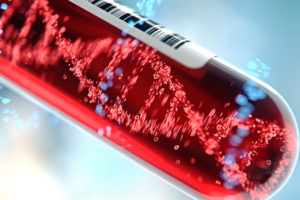Cystic Fibrosis (CF) Disease Overview
Cystic fibrosis (CF) is an inherited disorder that causes severe damage to the lungs, digestive system and other organs in the body. Cystic fibrosis affects the cells that produce mucus, sweat and digestive juices. These secreted fluids are normally thin and slippery. But in patients with Cystic Fibrosis, a defective gene causes the secretions to become sticky and thick. Instead of acting as lubricants, the secretions plug up tubes, ducts and passage ways, especially in the lungs and pancreas. Although cystic fibrosis is progressive and requires daily care, patients with Cystic Fibrosis are usually able to attend school and work. They often have a better quality of life than patients with Cystic Fibrosis had in previous decades. Improvements in screening and treatments mean that patients with Cystic Fibrosis now may live into their mid- to late 30s or 40s, and some are living into their 50s.Cystic Fibrosis Symptoms
In the United States because of newborn screening, cystic fibrosis can be diagnosed within the first month of life, before symptoms develop. But Cystic Fibrosis patients born before newborn screening became available may not be diagnosed until the signs and symptoms of Cystic Fibrosis disease show up. Cystic fibrosis signs and symptoms vary, depending on the severity of the disease. Even in the same person, symptoms may worsen or improve as time passes. Some patients may not experience symptoms until their teenage years or adulthood. Patients who are not diagnosed until adulthood usually have milder disease and are more likely to have atypical symptoms, such as recurring bouts of an inflamed pancreas (pancreatitis), infertility and recurring pneumonia. Patients with cystic fibrosis have a higher than normal level of salt in their sweat. Parents often can taste the salt when they kiss their children. Most of the other signs and symptoms of Cystic Fibrosis affect the respiratory system and digestive system.Cystic Fibrosis Causes
In Cystic Fibrosis (CF) disease, a defect (mutations) in a gene, the cystic fibrosis transmembrane conductance regulator (CFTR) gene changes a protein that regulates the movement of salt in and out of cells. The result is thick, sticky mucus in the respiratory, digestive and reproductive systems, as well as increased salt in sweat. Many different defects can occur in the gene. The type of gene mutation is associated with the severity of the condition. Children need to inherit one copy of the gene from each parent in order to have the disease. If children inherit only one copy, they won’t develop cystic fibrosis. However, they will be carriers and could pass the gene to their own children.Cystic Fibrosis Disease Risk Factors
Because cystic fibrosis disease is an inherited disorder, it runs in families, so family history is a risk factor. Although Cystic Fibrosis disease occurs in all races, it’s most common in white people of Northern European ancestry.Cystic Fibrosis Diagnosis
Cystic fibrosis diagnosis requires clinical symptoms consistent with cystic fibrosis in at least one organ system and evidence of CFTR dysfunction usually based on an abnormal sweat chloride test or the presence of mutations in the CFTR gene.
Following are some of the diagnostic tests that may be performed for the diagnosis of cystic fibrosis disease:
Immuno-reactive Trypsinogen (IRT) Test
The immuno-reactive trypsinogen (IRT) test is a standard newborn screening test that checks for abnormal levels of the protein called IRT in the blood. A high level of IRT may be a sign of cystic fibrosis. However, further testing is required to confirm the diagnosis.
Sweat Chloride Test
Sweat chloride test checks for increased levels of salt in the sweat, it is the most commonly used test for diagnosing cystic fibrosis. It The test is performed by using a chemical that makes the skin sweat when triggered by a weak electric current. Patients sweat is collected on a pad or paper and then analyzed in a lab. A diagnosis of cystic fibrosis is made if the sweat is saltier than normal.
Sputum Test
During a sputum test a sample of mucus is taken which can can confirm the presence of a lung infection. Sputum test can also show the types of germs that are present and determine which antibiotics work best to treat them.
Chest X-ray
A chest X-ray is useful in revealing swelling in the lungs due to blockages in the respiratory passageways.
CT Scan
CT scan creates detailed images of the body by using a combination of X-rays taken from many different directions. These images allows your doctor to view internal structures, such as the liver and pancreas, making it easier to assess the extent of organ damage caused by cystic fibrosis.
Pulmonary function tests (PFTs)
Pulmonary function tests (PFTs) determine whether the lungs are working properly. The tests can help measure how much air can be inhaled or exhaled and how well the lungs transport oxygen to the rest of the body. Any abnormalities in these functions may indicate cystic fibrosis.

